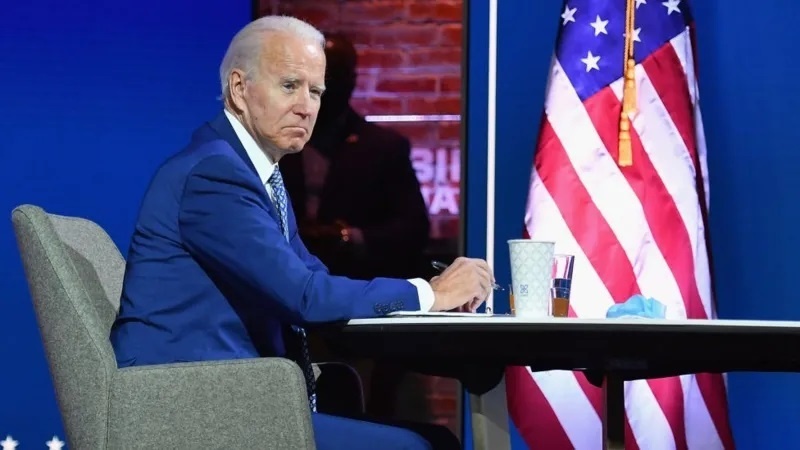Continuation of US policy of sanctions and maximum pressure against Iranians
-

Continuation of US policy of sanctions and maximum pressure against Iranians
Pars Today- The US announced that it will impose sanctions on 35 companies and ships that play a significant role in transporting Iranian oil to foreign markets, as part of the Biden administration's dual policy of diplomacy and pressure.
The US Treasury Department, which acts as Washington’s economic war room, announced on Tuesday as part of its maximum pressure policy against Iran: “Today, the United States is imposing new sanctions on 35 entities and vessels that play a significant role in the illegal transfer of Iranian oil to foreign markets. This measure… will impose additional costs on Iran’s oil sector.”
The US Treasury Department claimed: “Oil revenues provide the resources necessary for Iran’s nuclear program, contribute to the development of advanced drones and missiles, and offer ongoing financial and material support for the activities of Iran-affiliated forces.”
The US unilaterally and illegally withdrew from the JCPOA in May 2018 and imposed the harshest sanctions on Iran. The Biden administration has continued these sanctions under various pretexts, as part of its dual approach of diplomacy and pressure.
The Biden administration’s new measure to intensify pressure on Iran is part of a coordinated and organized Western campaign against Tehran, accompanied by new sanctions from the European Union and the United Kingdom targeting Iran’s aviation and shipping sectors, aimed at significantly reducing Iran’s oil revenues.
Additionally, Biden, through this move, aims to respond to accusations from the US President-elect, Donald Trump, regarding his administration’s disregard for Iran’s oil exports.
The reasons cited by the US for the new sanctions are the same old excuses, including funding Iran's nuclear program, military programs, and support for proxy groups in the region. Iran has been under US unilateral sanctions, including oil sanctions, for about 44 years.
The imposition of anti-Iranian sanctions during the presidency of Donald Trump, after the US withdrawal from the JCPOA and the launch of the maximum pressure campaign, took on new and unprecedented dimensions.
Washington imposed the harshest sanctions on the Iranian people in the hope of forcing Tehran to surrender to the US's unreasonable and illegal demands, which, as acknowledged by the Biden administration, ended in failure.
The key point is that the focal point of the US maximum pressure campaign against Iran has been to prevent Iran's oil exports. However, Tehran has been able to continue its oil exports and even increase them significantly, using various methods and innovative measures.
The American think tank “National Interest,” in a report, noted that macroeconomic trends in recent years have been in Iran’s favor. It stated: According to the Energy Information Administration (EIA), there was a sharp increase in the average annual price of Iranian crude oil, rising from $29 per barrel in 2020 due to the COVID-19 pandemic to $84 per barrel in 2022. Since the United States has limited influence over oil prices, this increase has allowed Iran to sell oil and generate higher profits, while the Biden administration has struggled to enforce its sanctions effectively.
The efforts of US presidents, especially Donald Trump, to impose the toughest and most extensive sanctions on Iran have been aimed at forcing Iran to accept the US's illegal and unreasonable demands, including in the areas of nuclear technology, regional policies, and missile capabilities.
The approach of the Biden administration has been a continuation of the same coercive approach as the Trump administration, which has proven to be ineffective.
With Trump's return to the White House and the start of his second term as president, it is expected that he will implement the same policy of maximum pressure against Iran, but in a more extensive manner. This policy has already been proven to be a failure during Trump's first term.
Key phrases: Iran and the US, US sanctions, Iranian oil exports, Iran
MG/ME


